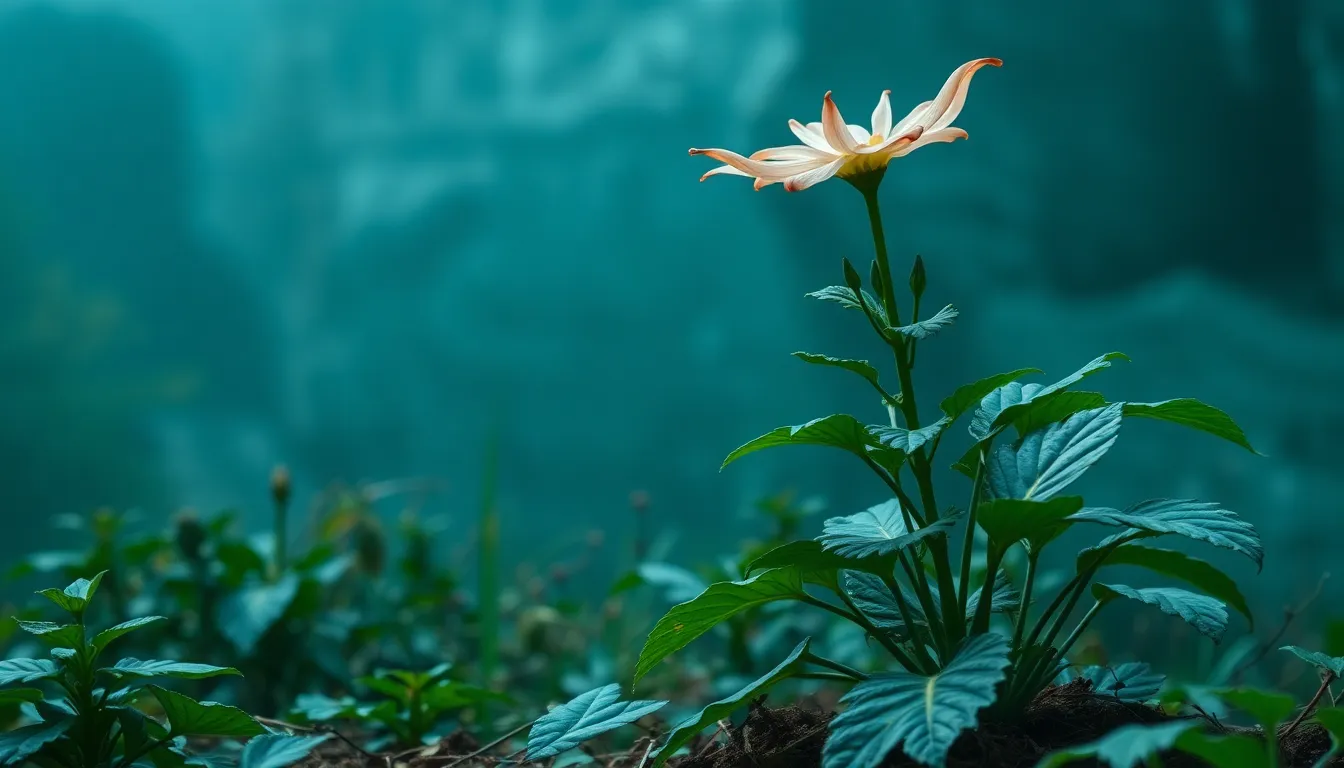Plant Myths That Are More Dangerous Than You Think!
1. Introduction: Understanding Plant Myths
Plant myths are prevalent in society, often passed down through generations or spread via social media and word of mouth. These myths can range from misconceptions about the safety of certain plants to exaggerated claims about their benefits. It is crucial to distinguish fact from fiction, as believing in these myths can lead to serious health risks or dangerous situations.
2. The Myth of “All Natural” Being Safe
One of the most pervasive myths is the belief that anything labeled as “natural” is inherently safe. This misconception can be particularly dangerous, as it leads people to trust substances without proper scrutiny. Many toxic plants are often marketed as “natural” remedies or ingredients.
- Aconite: Also known as monkshood, it is highly toxic and can cause severe poisoning.
- Deadly Nightshade: This plant contains atropine and can be lethal if ingested.
- Foxglove: While beautiful, this plant is a source of digitalis, which can be deadly.
Understanding that “natural” does not equate to “safe” is vital for ensuring personal and public safety.
3. The Dangers of Misidentifying Edible Plants
Misidentifying edible plants can lead to severe consequences, as many common edible plants have toxic look-alikes. Some well-known examples include:
- Wild Carrot</ (Queen Anne's Lace): This plant resembles the edible carrot but can be confused with the toxic hemlock.
- Morel Mushrooms: While delicious, they can be mistaken for toxic false morels, leading to poisoning.
- Rhubarb Leaves: The stalks are edible, but the leaves are toxic and can cause kidney failure.
Real-life cases of poisoning from plant misidentification highlight the dangers of foraging without proper knowledge. Always consult a reliable guide or expert when identifying plants for consumption.
4. The Myth of Home Remedies: Herbal Treatments Gone Wrong
Many people turn to herbal remedies for their perceived safety and effectiveness. However, these remedies can have risks and lead to adverse reactions. Common herbal treatments that can pose dangers include:
- St. John’s Wort: Can interact negatively with various medications, including antidepressants.
- Comfrey: Known for its healing properties, it can cause liver damage when used internally.
- Ginseng: While popular, it may lead to insomnia and increased heart rate in some individuals.
Case studies have shown that individuals have suffered severe side effects from these supposedly safe herbs, underscoring the importance of caution.
5. The Illusion of Organic Pesticides
There is a common misconception that organic pesticides are completely safe. While they may be derived from natural sources, some organic compounds can still pose health risks. For instance:
- Pyrethrins: These are derived from chrysanthemum flowers and can be toxic to aquatic life.
- Neem Oil: While touted for its safety, it can still cause irritation and has been linked to hormonal disruptions in high doses.
Understanding that organic does not mean non-toxic is essential for both environmental and personal safety.
6. The Impact of “Safe” Houseplants on Pets and Children
Many households proudly display houseplants, assuming they are safe for pets and children. However, numerous common houseplants are toxic:
- Philodendron: Can cause oral irritation and vomiting in pets.
- Peace Lily: Contains calcium oxalate crystals, leading to swelling and pain if ingested.
- Dieffenbachia: Known as dumb cane, it can cause severe mouth and throat irritation.
To protect young ones and pets, it is crucial to research plants before bringing them into the home. Consider preventive measures such as:
- Keeping plants out of reach of children and pets.
- Opting for non-toxic houseplants.
- Educating family members about the dangers of certain plants.
7. The Myth of Plant-Based Diets Being Completely Harmless
While plant-based diets can be healthy, they are not without their risks. Some potential health issues include:
- Nutritional Imbalances: A poorly planned plant-based diet can lead to deficiencies in essential nutrients like vitamin B12, iron, and omega-3 fatty acids.
- Food Allergies: Some individuals may develop allergies to commonly consumed plant foods, such as soy, nuts, or wheat.
- Oxalate Content: Certain plants, like spinach and rhubarb, contain oxalates, which can affect kidney health if consumed in large quantities.
It is essential to approach plant-based diets with knowledge and care to avoid these pitfalls.
8. The Reality of DIY Plant Treatments and Their Risks
Many people attempt to treat plant injuries or illnesses on their own, believing they can save time and money. However, this can lead to risks, such as:
- Incorrect diagnosis of plant issues, leading to ineffective or harmful treatments.
- Using harmful substances that can damage the plant or the environment.
- Neglecting underlying problems that require professional intervention.
Seeking professional advice for plant health issues is often a safer and more effective approach.
9. Cultural Myths: Misunderstandings Across Traditions
Cultural beliefs about plants can sometimes lead to dangerous practices. Misunderstandings can stem from folklore or traditional gardening methods. Some examples include:
- Using certain plants for medicinal purposes without understanding their effects.
- Beliefs that specific plants ward off diseases, leading to neglect of proper medical treatment.
- Traditions involving the use of toxic plants in rituals or ceremonies.
These cultural myths can perpetuate harmful practices, emphasizing the need for education and awareness.
10. Conclusion: Educating Yourself to Combat Plant Myths
In summary, understanding the realities behind common plant myths is crucial for ensuring safety and well-being. From the dangers of assuming “natural” means safe to recognizing the risks associated with plant-based diets, knowledge is power. It is vital to research and seek reliable sources for information about plants.
We encourage readers to share accurate information about plant safety and to challenge myths that can lead to harmful consequences. Together, we can cultivate a safer environment for ourselves and those around us.



